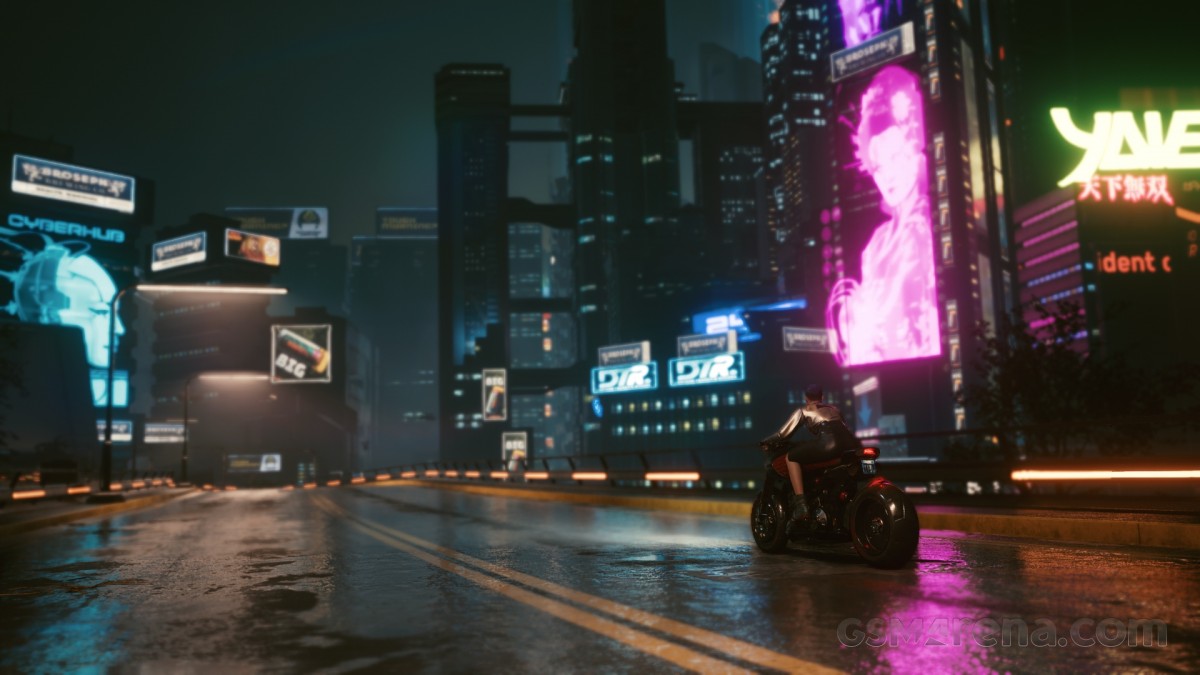Cyberpunk 2077: Style over Substance?
In the final weeks of a rather
forgettable year for many, publishers CD Projekt
sought to make this a memorable year in gaming with the release of
perhaps the most anticipated game of the past decade: Cyberpunk
2077.
A game that had been teased and
marketed for almost a decade after being first announced in 2012, the
gaming community worked itself into a near-frenzy – but how could
they not? A game created by veteran developers, famed for their
previous titles in The Witcher series,
a much-loved series of games which has received countless accolades.
Cyberpunk 2077 would
be an open-world, action-based RPG, inviting the player to explore a
cyberpunk-themed dystopia: Night City.
The game would have futuristic weapons and vehicles, violence,
obscenity, and a rich background lore– it would even feature
superstar actor Keanu Reeves!
Cyberpunk's impending release gained so much traction and attention in 2020 that it was hard to not hear it mentioned in the gaming sphere, with the hype and chatter becoming an every-day talking point for live-streamers, forums, media outlets and casual gamers alike. Trailers and teaser pieces have showed how beautifully futuristic the game looks with its neo-futuristic cyberpunk art styling, with the hyper-realistic graphics being touted as a major selling point of the game.

Could this release possibly go wrong? As it turns out, yes. On December 18th, just eight days after the release of the game, Sony announced that they would be removing Cyberpunk 2077 from the online PlayStation store, and offering all disappointed customers a full refund, due to ever-growing customer dissatisfaction.
This is not only massive news in the gaming industry, but a rather rare occurrence; it seems that Sony have decided that the massive volume of complaints they are receiving has led them to decide that supporting Cyberpunk is simply not worth the hassle. From front page spotlight promotion to being pulled from online stores, the game's fall from grace has been somewhat of a spectacle. So what went so horribly wrong?
Cyberpunk has been something of a let down for many of those who were once firmly on-board the hypetrain. Thousands of videos, some of them reaching the front page of Reddit, show a plethora of bugs and glitches within the game. Clips of the game have circulated showing bizarre instances: cars appearing from nowhere and flying through the air, and in-game characters sitting on invisible furniture. Some of these bugs have been outright game-breaking: a number of players complaining about having their own character disappear from the screen entirely, requiring their game to be restarted.
The dysfunctionality and erraticism of Cyberpunk's
AI has also been well documented
by reviews and videos online. In-game characters are often seen
bending the rules of physics, walking through walls and becoming
invisible. Furthermore, and much to the dismay of many players, the
police of Night City seem
to regularly appear out of thin-air and open fire on the main
character, when no crime has been committed. The overt and overwhelming bugginess of Cyberpunk has been documented as far worse on console systems, with thousands of PlayStation and Xbox players complaining about bugs and glitches that render the game practically unplayable, or at least thoroughly frustrating. It seems that Cyberpunk was developed without consideration of the fact that the PS4 and Xbox One were built and released seven years ago, and even at the time were not equipped with top of the line hardware compared to high-end PCs of the same era. This has meant that, for console players, the bugs and glitches are often accompanied by terrible frame rates, lag, and poor distance rendering.
For PC gamers, there does seem to be slightly less bugginess, but the hardware problems remain: there are still performance issues when the game is run on anything less than top-of-the-line hardware. Pcgamer.com have reported, through their trials and testing of the game, that even a PC equipped with a high-end GPU (specifically a GeForce RTX 3080, starting price £649) had issues with maintaining high frame rates and struggled with object/ character rendering, when playing on max settings. This is an issue for any game, but particularly Cyberpunk. Pre-release, the developers put a lot of emphasis on the visuals and artwork of the game as one of its major selling points, which is so far not being lived up to.

Perhaps these bugs, glitches and hardware incompatibilities could be overlooked, if players found the back-story and lore
appealing and absorbing enough. However, Cyberpunk's
lore has been touted as underdeveloped and depthless. A large number
of reviewers have found the game's lore to be rather forgettable and
lacking in character development. Lofty ideals and philosophies of
life within Night City are
thrusted at the player through a short introductory montage, but the
game expects the player to care about certain in-game objectives and
issues, without telling them why they
should care. Much like the game's glitchy AI, the lore and background
story of Cyberpunk feels
somewhat rushed, imprecise and sloppy.
This together with the
all-too-frequent bugs and glitches have left some scathing reviewers
to equate Cyberpunk to
an early-access pre-release title. For many, the beautiful cityscape
and game-art does not make up for the lack of attention-to-detail by
the developers. All in all, many have found Cyberpunk
to fall short of their expectations of an A list game, one that
nonetheless has been in the works for nearly a decade.
The Cyberpunk 2077 fiasco can potentially teach us a lesson: the hype and attention in the market, that every company seeks for themselves, can backfire. Developers and entrepreneurs alike must be aware that, if lofty expectations are set, any shortcomings will be caught under a microscope and projected across the community. The simple fact is that the consumer base were not made aware of the unfinished state and shortcomings of the game upon release. Market attention and apprehension must be matched with dedication to fulfilling the expectations of the consumer (or pure honesty about setbacks), lest one finds themselves in a position similar to one that the developers Cyberpunk are in today: a position of damage control and public apology!
~
Read more about Cyberpunk 2077 below:
https://www.cyberpunk.net/gb/e...
https://en.wikipedia.org/wiki/...
https://www.reddit.com/r/Games...
